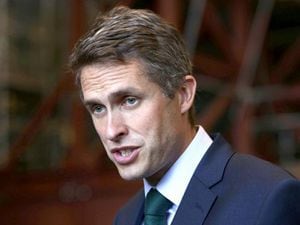Defence Secretary warns of ‘real threat’ over Afghanistan terrorists’ UK links
Some IS fighters are suspected of travelling to Afghanistan after the group’s collapse in Syria and Iraq to continue their efforts to attack the West.

Terrorists in Afghanistan have made UK links and pose a “real threat” to Britain, raising concerns over possible “Manchester-style attacks”, the Defence Secretary has warned.
Intelligence agencies are said to have detected evidence of militants making links from the war-ravaged country to Britain and its European neighbours.
Some IS fighters are suspected of travelling to Afghanistan after the group’s collapse in Syria and Iraq to continue in their efforts to attack the West.
Meanwhile, hundreds of British troops are being deployed to assist Afghan forces in their efforts to eradicate the extremists.
“What we see is a real threat posed by these groups to the UK and we’ve got to be acting as we are to ensure that we do not see future Manchester-style attacks,” Gavin Williamson told Sky News.
“We consistently see terrorist groups operating here in Afghanistan, (and) evidence of their links back not just to the United Kingdom but to the whole of continental Europe.”
The Defence Secretary was visiting Mazeer-i-Shareef, a city in northern Afghanistan.
A branch of IS, called IS-Khorasan or IS-K, is said to be operating in the country with fighters recruited from Syria and Iraq.

Prime Minister Theresa May committed 440 additional British troops to an international mission in Afghanistan at a Nato meeting in July.
It came amid pressure from US President Donald Trump for European allies to contribute more to their collective defence.
The extra troops, from the Welsh Guards, are bolstering the UK-led Kabul Security Force.
It provides protection for Nato civilian staff engaged in capacity-building programmes in Afghanistan, as well as mentoring Afghan forces in the capital.
The deployment was set to begin in August with a second contingent to follow in February, taking the total UK military presence in the country to 1,100.
General John Nicolson, the outgoing American head of the international coalition, said that IS-K had been prevented from growing as a result of the campaign.
He told Voice of America: “They have been able to replenish a portion of their losses by recruiting from other violent extremist organisations.
“Despite this recruiting there are losing fighters and losing ground.”





